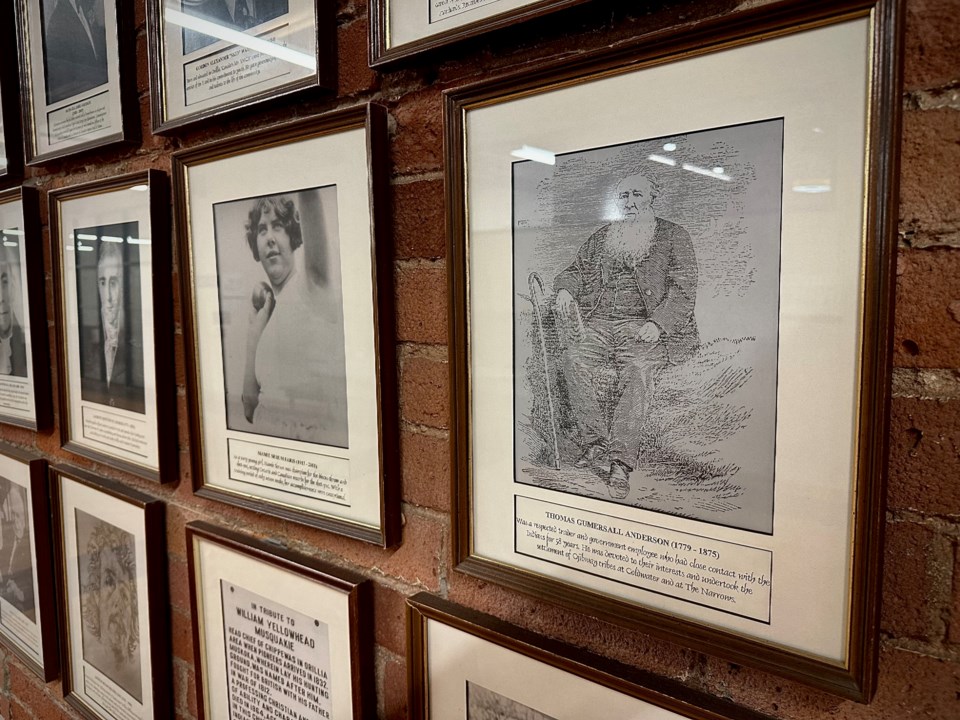OrilliaMatters welcomes letters to the editor at [email protected] or via the website. Please include your full name, daytime phone number and address (for verification of authorship, not publication). The following letter is in response to an article about Thomas Gummersall Anderson being removed from the Orillia Hall of Fame, published April 8.
I was so happy to read this article/announcement.
I am writing in support of the removal of Thomas Gummersall Anderson as a historic hero in Orillia.
Thank you to those who brought this change forward. I live in Simcoe County. The ripple goes out over this land. I am grateful. For me this is an important step in truth and reconciliation.
In early 2021, members of Storytelling Orillia embarked on a project called Gimaadaadiziwin (translation — ‘we are starting a journey’) to find out more about the history of our region in relation to the Indigenous peoples who have lived here since time immemorial.
Each member chose an area of personal interest. Then they shared this information through storytelling at the June 2021 story circle, which took place on Zoom due to pandemic restrictions. Here is a link to these stories: www.youtube.com/@storytellingorillia1004.
As a member of Storytelling Orillia, I chose to research and tell the story of Sir Francis Bond Head. My story on Bond Head revealed a less-than-honourable piece of our pre-Confederation history. It revealed an ongoing disregard for the Indigenous peoples of this area. The practices of colonial officials — specifically, Sir Francis Bond Head and the then-Indian agent Thomas Anderson — were in the interests of the Crown only. Their agenda was to remove thriving Indigenous families at all costs so the land and business could be taken over by incoming settlers. They accomplished this.
The Crown’s agenda was resource extraction to England, land and subsequent wealth dominance by the elite in Upper Canada and in England.
Great Britain’s parliament solved its problem of expanding overcrowding and poverty in cities by promising land to immigrants to the New World. Most often those who came were poor, without a future and they were promised land in exchange for work. Resource extraction to the mother country needed labourers.
The solution of the advancing colonial agenda was to seize the land of the Ojibwe peoples, remove the Indigenous people to predetermined areas away from the settlers. This was the policy of the Indian Department.
The first peoples here, the Ojibwe/Anishinaabeg, were willing to support the Crown. After all, they had fought to secure the border in 1812. The Anishinaabeg expected to come to agreements and treaties as equal partners. There was no negotiation with chiefs. The outcome for Upper Canada was predetermined before gathering. The ‘recorded meetings’ were one-sided stories to suit the Crown only.
Thomas Gummersall Anderson was responsible for Indian policy as a head in the Indian Department of Upper Canada from 1815 to 1875. His words and actions were harmful to the Indigenous peoples.
Sir Frances Bond Head and Thomas Gummersall Anderson were key players in the forced removal of Indigenous peoples from the Orillia/Coldwater area. Thomas Gummersall Anderson had established the first Indian reserve in Coldwater in 1830, and also used his position to dismantle it by 1835.
I was not taught these ‘facts’ going to school in the 1960s and ’70s. These are stories that need to be told, heard, shared. These ‘hidden historical stories’ reveal truth.
They are, for many settler peoples and new immigrants in Canada, like frozen lakes in our country’s beginnings — lakes that have been frozen for a very long time. It is time to thaw these ‘frozen waters,’ feel the movement that ice turned into water brings. It is time to listen deeply to each other, I believe. From listening and learning come new responses.
I am grateful to all those who did the work to address this wrong in our shared history. This is reconciliation work made visible.
It is time to share wider truths about our roots, and so resilience is honoured and we move forward in a good way for all Canadians.
Jan McFarland
Barrie



